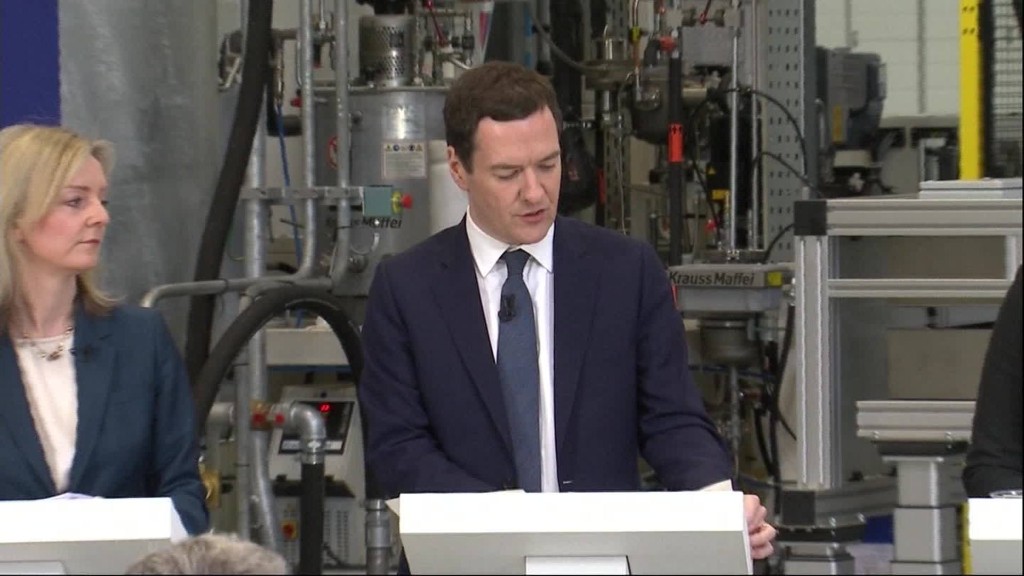
Britain will suffer a hit to its economy if it votes in June to leave the European Union. That's the view of most independent forecasters, the International Monetary Fund and the U.K. government.
Even Boris Johnson, the London mayor who is leading the leave campaign, has acknowledged that a vote to quit the world's biggest single market could initially cost Britain jobs.
Johnson says there would then be a rapid upswing but there's plenty of debate as to how bad the Brexit blow would be, and how long it would last.
Related: Brexit: A short guide to the next two months
The U.K. government published its first detailed analysis Monday of what it thinks would happen under three scenarios. Here's the official view of the long term impact if Britain has to negotiate a new relationship with the EU:
1. The good (or 'let's copy Norway')
Britain leaves the EU, but retains its membership in the European Economic Area, a treaty from 1994 that gives three non-member countries access to EU markets.
That would give it the same status as Norway, Iceland and Liechtenstein, but it would mean continuing to grant EU citizens the right to live and work in Britain, accepting EU regulations, and making payments to the EU budget -- all things many Brexit campaigners want to end.
Related: The truth about UK immigration
Even under this scenario, finance officials estimate that the U.K. economy would be about 3.8% smaller after 15 years than it would have been with full membership in the EU.
That equates to lost GDP worth 1,100 pounds ($1,560) per person, and 20 billion pounds ($28.4 billion) in lost tax revenue.
2. The bad (or 'Canada's pretty cool')
The second alternative would be to negotiate a bilateral trade agreement with the EU, putting the U.K. in a group of countries that includes Canada, Switzerland and Turkey.
Officials say the negotiations would be extremely complex, and a free trade agreement would provide less access to the EU single market than Option 1 -- particularly in services, which account for nearly 80% of the U.K. economy.
The damage under this scenario would be greater: The economy would be about 6% smaller by 2030 than it would have been, equivalent to lost GDP of 1,800 pounds ($2,556) per person. Lost tax revenue would amount to 36 billion pounds ($51 billion).
3. The ugly (or 'Britain joins the BRICS')
If all else fails, the U.K. could rely on a relationship with the EU based on the rules of the World Trade Organization.
Countries such as Brazil, or Russia (when it's not under sanctions), trade with the EU on this basis.
This is the only scenario that would free Britain completely from the obligations that come with access to the EU single market. But it would also come at the highest price because of the additional barriers to trade.
Officials estimate the U.K. economy would be about 7.5% smaller after 15 years than it would have been. That's 2,100 pounds ($2,982) per person in terms of annual GDP, and 45 billion ($64 billion) in lost tax revenue.
Brexit campaigners described the government's report as deeply flawed.
"It also ignores the Treasury's own analysis that EU regulation costs the UK economy much more -- a staggering £125 billion a year," said Vote Leave CEO Matthew Elliott.


